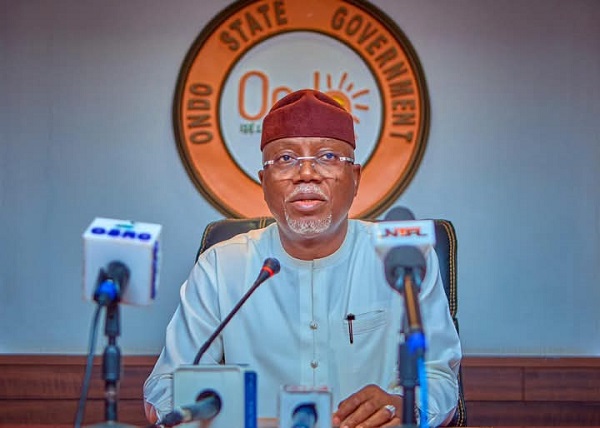Paragraph 1: Transfer of Ondo State University of Medical Sciences Teaching Hospital to FUTA
The Ondo State Government has officially transferred the University of Medical Sciences Teaching Hospital complex located in Akure to the Federal University of Technology, Akure (FUTA). This decision, announced by the state’s Commissioner for Health, Dr. Banji Ajaka, comes in response to President Bola Tinubu’s approval for FUTA to establish a College of Medicine and a dedicated teaching hospital. The transfer encompasses the entire hospital complex, including staff, infrastructure, equipment, and existing liabilities. All employees of the former teaching hospital will be absorbed into the newly established FUTA Teaching Hospital under the Federal Government’s purview. This strategic move is designed to bolster the healthcare system in Ondo State while simultaneously advancing FUTA’s aspirations to become a prominent center for medical sciences in Nigeria.
Paragraph 2: Rationale and Implications of the Hospital Transfer
The transfer of the teaching hospital complex is a significant development for both healthcare and education in Ondo State. By leveraging the existing infrastructure and personnel of the former state-owned facility, FUTA can expedite the establishment of its College of Medicine and Teaching Hospital. This avoids the need for extensive construction and recruitment processes, saving valuable time and resources. The transition also ensures the continued operation of the hospital, preventing any disruption to healthcare services for the local community. The absorption of existing staff into the federal system provides job security and potentially better career opportunities for healthcare professionals. This collaborative approach between the state and federal government promises to enhance the quality and accessibility of medical education and healthcare services in the region.
Paragraph 3: Addressing the EU Deforestation Regulation
Beyond the hospital transfer, the Ondo State Executive Council has also addressed concerns regarding the European Union’s Deforestation Regulation. This regulation prohibits the import of crops cultivated in deforested areas, posing a significant threat to farmers in Ondo State who rely on agricultural exports. To mitigate this risk, the state government has approved new measures that focus on sustainable agroforestry practices. These practices aim to balance agricultural activities with forest conservation, ensuring that farms operate within designated areas while preserving reserved forests. This proactive approach aims to safeguard the livelihoods of farmers while adhering to international environmental regulations.
Paragraph 4: Implementing Sustainable Agroforestry Measures
The state’s strategy for complying with the EU regulation involves a combination of mapping, traceability, and farmer support. Farmers cultivating cocoa, cashew, oil palm, and rubber will be permitted to continue their operations, under strict mapping and traceability systems. This allows the origin of agricultural products to be tracked, ensuring they comply with deforestation regulations. By December 30, 2025, any crop that cannot be traced back to a mapped farm will face rejection in the EU market. To avoid this scenario, the Ondo State government has committed to supporting farmers in mapping their farms and obtaining the necessary permits, thereby protecting their access to international markets.
Paragraph 5: Tariff Review and Alignment with Regional Framework
In addition to addressing deforestation concerns, the Ondo State Executive Council has approved a review of tariffs across agricultural produce and timber value chains. This review seeks to harmonize Ondo State’s tariff structure with that of other southwestern states under the Development Agenda for Western Nigeria Commission (DAWN) framework. This regional alignment aims to promote economic integration and facilitate trade within the region. By adopting a consistent tariff system, the southwestern states can foster a more competitive and predictable market environment for agricultural and timber products.
Paragraph 6: Local Road Development Initiatives
Finally, the State Executive Council has launched an initiative to improve road infrastructure across Ondo State. Each cabinet member has been tasked with nominating a road project within their respective local government area. These projects, distinct from those already budgeted for 2025, are intended to supplement existing infrastructure development plans and directly benefit local communities. The Commissioner for Information, Mr. Idowu Ajanaku, emphasized that these road projects are not driven by private or partisan interests but rather aim to ensure equitable development across all 18 local government areas of Ondo State. These projects represent targeted interventions to enhance connectivity and improve the quality of life in communities throughout the state. This decentralized approach to road development empowers local representatives to prioritize projects that address the specific needs of their constituents.


